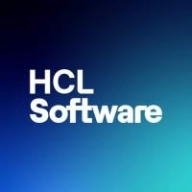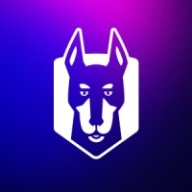

HCL AppScan and Snyk compete in security scanning. Snyk has an edge with its developer-friendly features and integration capabilities.
Features: HCL AppScan is adept at detecting vulnerabilities like XSS and SQL injection, offering low false-positive rates and valuable integration with development processes. Snyk excels with its ease of use, seamless DevOps pipeline integration, and strong focus on dependency monitoring and container security.
Room for Improvement: HCL AppScan needs better integration capabilities, user-friendliness, and expanded language support. Snyk could enhance real-time feedback and refine its notification system to reduce noise, along with improvements in reporting and plugin integration.
Ease of Deployment and Customer Service: HCL AppScan is mainly on-premises with solid technical support but faces responsiveness challenges post-transition from IBM. Snyk is favored for cloud deployments, praised for responsive technical support and effective migration assistance.
Pricing and ROI: HCL AppScan is expensive with considerable ROI through vulnerability reduction and process integration benefits. Snyk, while not inexpensive, offers pricing flexibility and is seen as a cost-effective solution for broader organizational scalability.
I can see that Snyk saves the costs of hiring security developers for vulnerability scanning and security checks, as that responsibility is now managed by Snyk.
Veracode provides excellent assistance and regularly scheduled calls to address customer concerns and updates.
There is still room for improvement when it comes to the speed of response.
Our long-standing association has ensured smooth communication, resulting in favorable support experiences and satisfactory issue resolution.
Their response time aligns with their SLA commitments.
We could understand the implementation of the product and other features without the need for human interaction.
Snyk allows for scaling across large organizations, accommodating tens of thousands of applications and over 60,000 repositories.
Snyk is very scalable and can handle my organization's growth and changing needs.
Since we've been using HCL AppScan for about three months, we really have not encountered a false positive.
If I'm scanning a web application, it shows me the various components being used. It tells me whether I have Java libraries, .NET frameworks, or other log management libraries such as Log4j, and what versions of those specific components are present.
It lacks the ability to select branches on its Web UI, forcing users to rely on CLI or CI/CD for that functionality.
The inclusion of AI to remove false positives would be beneficial.
As we are moving toward GenAI, we expect Snyk to leverage AI features to improve code scanning findings.
Companies often choose based on budget constraints, with Veracode being on the higher end cost-wise.
Snyk is recognized as the cheapest option we have evaluated.
After negotiations, we received a special package with a good price point.
Snyk is less expensive.
AppScan's most valuable features include its ability to identify vulnerabilities accurately, provide detailed remediation steps, and the newly introduced AI-powered features that enhance its functionality further.
I have utilized its interactive application security testing, as well as both static application security testing, dynamic application security testing, and IAST.
Our integration of Snyk into GitHub allows us to automatically scan codebases and identify issues, which has improved efficiency.
Snyk helps detect vulnerabilities before code moves to production, allowing for integration with DevOps and providing a shift-left advantage by identifying and fixing bugs before deployment.
Snyk has positively impacted my organization by improving the security posture across all software repositories, resulting in fewer critical vulnerabilities, more confidence in overall product security, and faster security compliance for project clients.
| Product | Market Share (%) |
|---|---|
| Snyk | 5.6% |
| HCL AppScan | 2.2% |
| Other | 92.2% |


| Company Size | Count |
|---|---|
| Small Business | 14 |
| Midsize Enterprise | 6 |
| Large Enterprise | 31 |
| Company Size | Count |
|---|---|
| Small Business | 21 |
| Midsize Enterprise | 9 |
| Large Enterprise | 21 |
IBM Security AppScan enhances web application security and mobile application security, improves application security program management and strengthens regulatory compliance. By scanning your web and mobile applications prior to deployment, AppScan enables you to identify security vulnerabilities and generate reports and fix recommendations.
Snyk excels in integrating security within the development lifecycle, providing teams with an AI Trust Platform that combines speed with security efficiency, ensuring robust AI application development.
Snyk empowers developers with AI-ready engines offering broad coverage, accuracy, and speed essential for modern development. With AI-powered visibility and security, Snyk allows proactive threat prevention and swift threat remediation. The platform supports shifts toward LLM engineering and AI code analysis, enhancing security and development productivity. Snyk collaborates with GenAI coding assistants for improved productivity and AI application threat management. Platform extensibility supports evolving standards with API access and native integrations, ensuring comprehensive and seamless security embedding in development tools.
What are Snyk's standout features?Industries leverage Snyk for security in CI/CD pipelines by automating checks for dependency vulnerabilities and managing open-source licenses. Its Docker and Kubernetes scanning capabilities enhance container security, supporting a proactive security approach. Integrations with platforms like GitHub and Azure DevOps optimize implementation across diverse software environments.
We monitor all Application Security Tools reviews to prevent fraudulent reviews and keep review quality high. We do not post reviews by company employees or direct competitors. We validate each review for authenticity via cross-reference with LinkedIn, and personal follow-up with the reviewer when necessary.